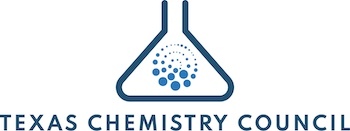Complete Story
11/07/2024
Trump's Win Means Changes in Plastics Environmental, Trade Policies
Plastics News | Steve Toloken | Nov. 6, 2024
Trump's Win Means Changes in Plastics Environmental, Trade Policies
Plastics News | Steve Toloken | Nov. 6, 2024
A second Donald Trump administration seems certain to bring changes to Washington on environmental and trade policy that impact the plastics industry.
The most immediate may be how the U.S. approaches the global plastics treaty, which has its fifth and final scheduled negotiating session in late November in South Korea.
Beyond that, Trump's appointees could put forward big policy changes on chemical recycling, single-use plastics procurement and other areas at key agencies.
On economic policy, Trump has said he plans much bigger tariffs than enacted in his first term.
For the plastics treaty, a Trump presidency could throw confusion into the U.S. negotiating position at the talks in South Korea.
President Joe Biden's administration in August said it was shifting the U.S. stance in favor of some caps or limits on virgin plastic production as well as having the treaty develop obligations around chemicals of concern in plastics and problematic plastic products.
But some Republicans in Congress came out strongly against production caps in October letters to Biden, echoing industry opposition to the Biden position on caps and suggesting that it would be difficult to get a treaty approved by the Senate.
One member of Congress who urged the Biden administration to take a tougher position in the talks, Rep. Jared Huffman, D-Calif., told Politico in a Nov. 5 story that a Trump presidency would derail the kind of treaty that he wanted.
"A Trump election would really spell doom, I think, for a strong treaty, at least one that includes the United States," said Huffman, who was part of a Congressional delegation to the last round of talks in Canada in April.
Trump withdrew the United States from the Paris climate agreement early in his first term.
More tariffs
Outside the treaty, a Trump presidency could mean more tariffs, many of which were opposed by groups like the American Chemistry Council in Trump's first term as disruptive to supply chains.
On the campaign trail, Trump has said he wants 60 percent tariffs on imports from China and up to 20 percent on goods from other countries.
Tariffs in Trump's first term often divided the plastics industry. Sectors including vinyl flooring manufacturers and mold makers, for example, backed tariffs that protected their products.
Other parts of the industry opposed some of those tariffs. Large plastics processors had urged the Trump administration to reject tariffs on Chinese-made molds, saying they raised costs.
But U.S. mold makers favor even higher tariffs on China. In May, when the Biden administration announced it was maintaining tariffs on Chinese molds at 25 percent, the American Mold Builders Association said the tariffs should instead be set between 30 and 50 percent.
Trump's win means uncertainty for a key plastics end market, the auto industry, with Honda saying that permanent tariffs on Mexico would impact the 160,000 vehicles it ships from Mexico to the U.S. and could cause the automaker to look at shifting production, according to Automotive News, a sister publication to Plastics News.
Plastics regulation
In Washington regulatory policy, Trump appointees to the Environmental Protection Agency, the Federal Trade Commission and other agencies could change Biden administration regulations that impact the plastics industry.
The FTC, for example, is part-way through a rewrite of the environmental marketing rules known as the Green Guides that has included sharp debate about how to treat chemical recycling.
Industry and environmental groups have also sparred over Biden EPA proposals regulating chemical recycling, as well as the EPA's 2023 plastics strategy and a White House plastics strategy this year that called for limits on federal buying of single-use plastics.
Parts of the plastics industry's Washington agenda came into sharper focus in September, when Congress introduced a bill that tracks parts of the federal policy framework for industry groups, calling for a national 30 percent recycled content standard for plastic packaging by 2030 and for rules to support the "rapid growth" of chemical recycling.
The environmental group Beyond Plastics, however, in September released a 27-point policy framework for the next president, including limits on new plastics plants and on chemical recycling, as well as national packaging reduction legislation and urging the U.S. government to join with countries in a "high ambition" coalition in the plastics treaty talks.
While Washington policy will shift in a second Trump term, including with Republicans taking control of the Senate, the impact of the election was less clear in state capitols.
States that have pursued strong recycling policy agendas, like California and others that have passed extended producer responsibility legislation since 2021, are expected to continue on that path.

